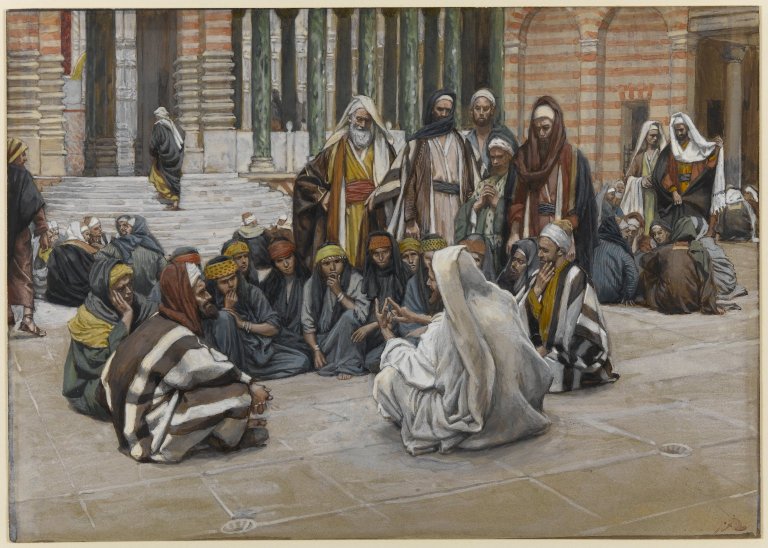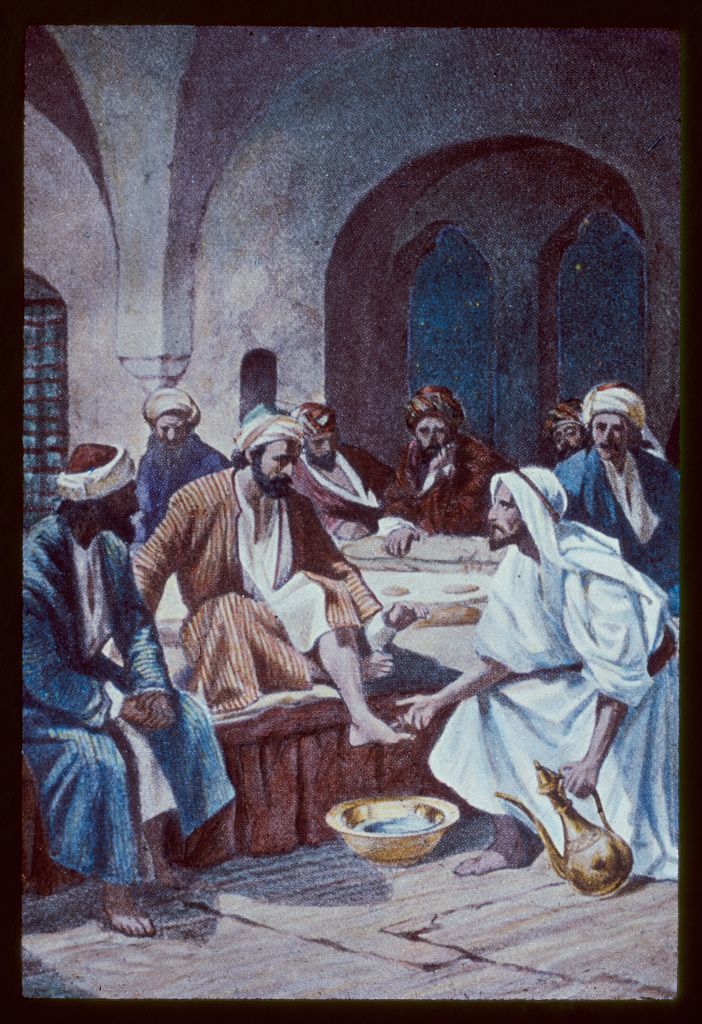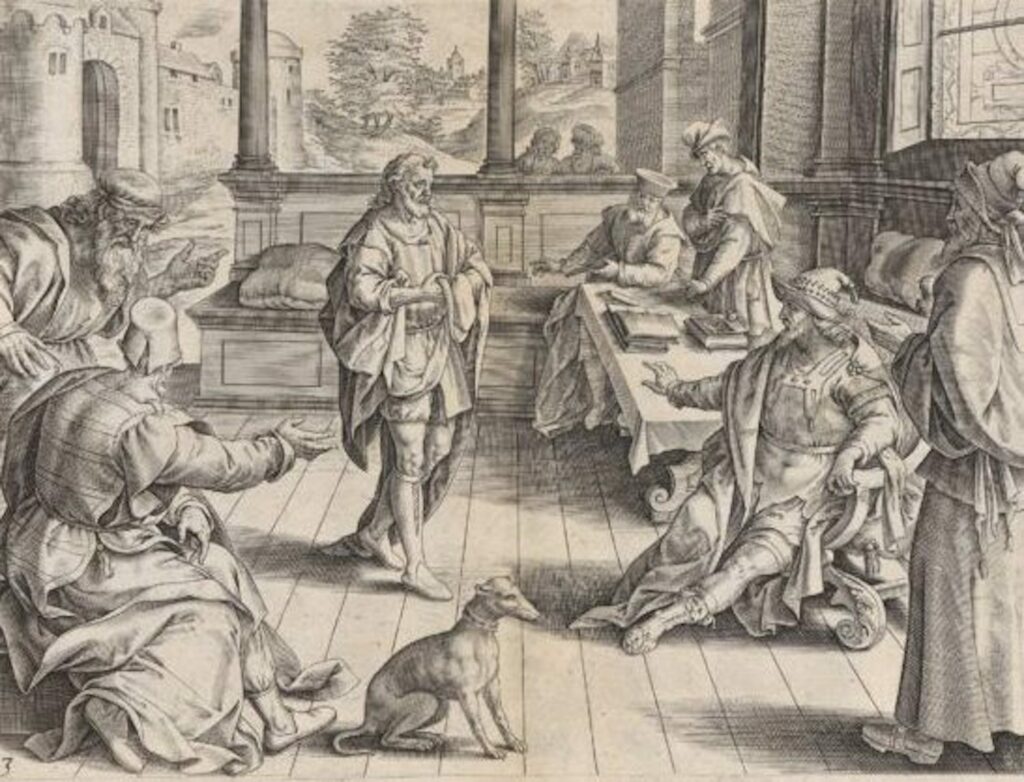The King Who Was A Perfect Servant

Jesus Christ is very God of very God, but when He came to mankind in the flesh, He took the form of a servant or bondslave upon Himself. There has only been one perfect Servant of God upon Earth, and, being the Son of God, Christ was the Servant of God in a way no other man ever has been.
In ancient times, a Hebrew servant could leave his master and go free when his term of service ended. But what if he declared at that time that he would never leave his master, along with his wife and children, because he loves them? Then “…his master shall bring him unto the judges; he shall also bring him to the door, or unto the door post; and…shall bore his ear through with an [awl]; and he shall serve him for ever” (Exodus 21:6).
Christ has declared that He loves His Father, along with His wife (His Church), and His children who have been given to Him by God, like the Hebrew servant did.
This is a perfect type of Christ. He hired Himself out as a bondslave to mankind, and has served in that capacity perfectly. During this time, He acquired a wife (the Church). “…ye should be married to another, even to Him who is raised from the dead…” (Romans 7:4 emphasis added). He has also brought forth children: “Having predestinated us unto the adoption of children by Jesus Christ to Himself, according to the good pleasure of His will…” (Ephesians 1:5 emphasis added), and “Behold I and the children which God hath given Me” (Hebrews 2:13 emphasis added). Christ has declared that He loves His Father, along with His wife (His Church), and His children who have been given to Him by God, like the Hebrew servant did. He does not want to go free; He therefore has become their Servant forever.

Christ’s servant attitude was further displayed when He insisted on washing His disciples’ feet Himself. “…after He had washed their feet…He said unto them, Know ye what I have done to you? Ye call me Master and Lord: and ye say well; for so I am. If I then, your Lord and Master, have washed your feet; ye also ought to wash one another’s feet. For I have given you an example, that ye should do as I have done to you. Verily, verily, I say unto you, The servant is not greater than his lord; neither he that is sent greater than He that sent him. If ye know these things, happy are ye if ye do them” (John 13:12-17 emphasis added).
Yet He stood up in the midst of His disciples and girded Himself to serve His people as they make their way through a polluted world afflicted by sin.
Both His earthly people and the world rejected Christ as their Lord. Yet He stood up in the midst of His disciples and girded Himself to serve His people as they make their way through a polluted world afflicted by sin. He also washed the dirt and stains from their feet that they had collected as they make their way through the world. “God is love,” and love is greatly pleased to serve the ones it has developed who are in need of this service.

“Ye call me Master, and Lord…and so I am” (John 13:13 emphasis added). Servants should copy their masters, and subjects should obey their lord and king. Our Master is Christ, who, as our Lord, directs and teaches us in order to govern and protect us. He wants us to learn in His school and to serve in His house. He wants us to submit to Him as the royal Monarch. We are also to depend on Him as a Savior. But how can we expect Him to save us if we won’t subject ourselves to Him?
They should also be willing to carry out the humblest chores for them, preferring to honor their brothers and sisters in Christ instead of choosing to honor themselves.
Jesus said to the disciples, “If I then, your Lord and Master, have washed your feet; ye also ought to wash one another’s feet” (John 13:14 emphasis added). He meant that they should be ready to lower themselves to the weak condition of those who are brothers and sisters in Christ according to His example. They should also be willing to carry out the humblest chores for them, preferring to honor their brothers and sisters in Christ instead of choosing to honor themselves.
“…The servant is not greater than his lord; neither he that is sent greater than He that sent him” (John 13:16 emphasis added). Christ also used another argument to encourage His disciples to follow His example. He made humble acts more honorable by doing them Himself, in spite of His dignity and superiority over them. A Christian’s true glory comes from being as humble in his own territory as our Lord is in His.

“…unto all them that obey Him” (Hebrews 5:9 emphasis added). Those who “obey Him” are the only ones who have proof that they’ll be saved, but not those who choose to continue to live in sin. By His obedience to God, Christ was made perfect, and, by our obedience to Him in following His true example, we will also be made perfect. The principle of the servant is what Christ lived by—the opposite of what the world lives by. And, if we desire to please Him, we must live by this same principle.
And the only way men can be called “servants of God” is by identifying with their Perfect Substitute, the Lord Jesus Christ
The true Servant of God is Christ. He was set upon the throne to serve the Lord God and those who follow Him. And the only way men can be called “servants of God” is by identifying with their Perfect Substitute, the Lord Jesus Christ—the Perfect Servant of God.
As God’s Perfect Servant, Christ was able to become what we are, so that we can become a Perfect Servant like Him—which is God’s way. People want to rule, but Christ chooses to serve, and we should make it our goal to be like our Lord!
{Image credits: Featured image (when applicable) by Albrecht Dürer from the The George Khuner Collection at the Metropolitan Museum of Art under a CC0 license; Opening image from Brooklyn Museum by PIcryl (Public Domain Mark)]




